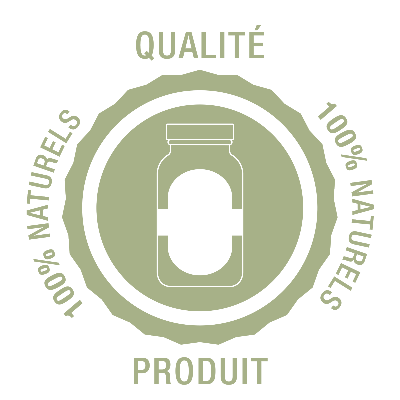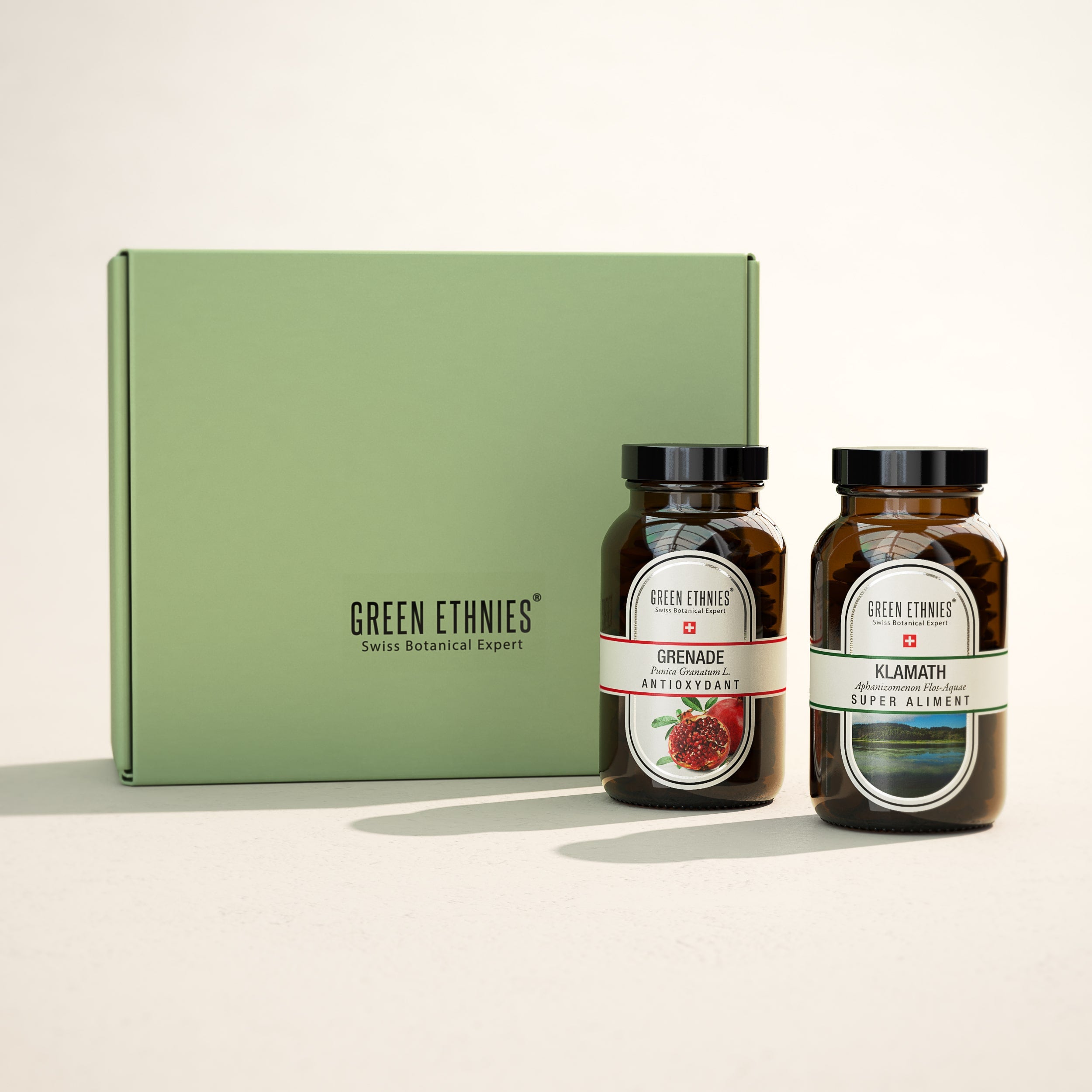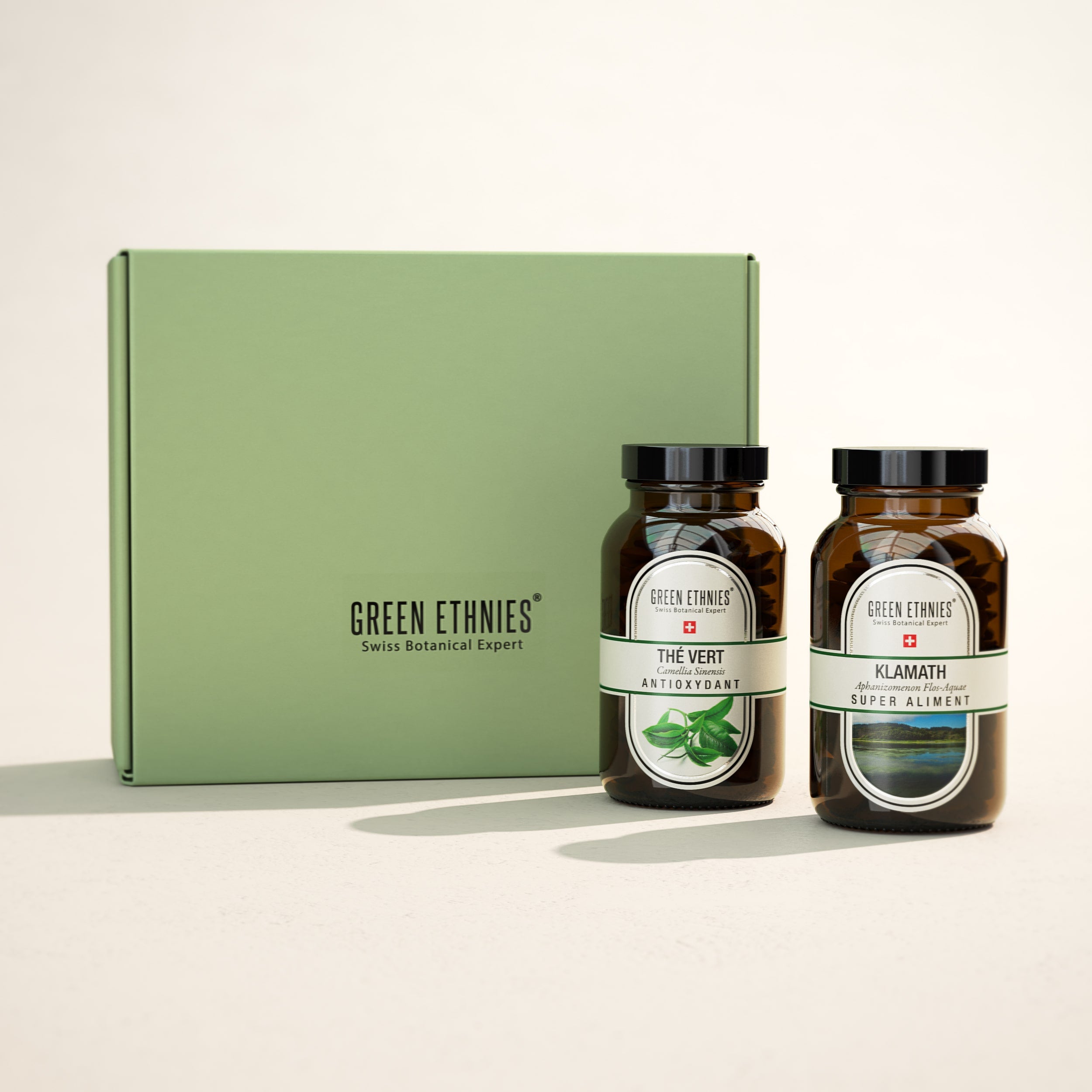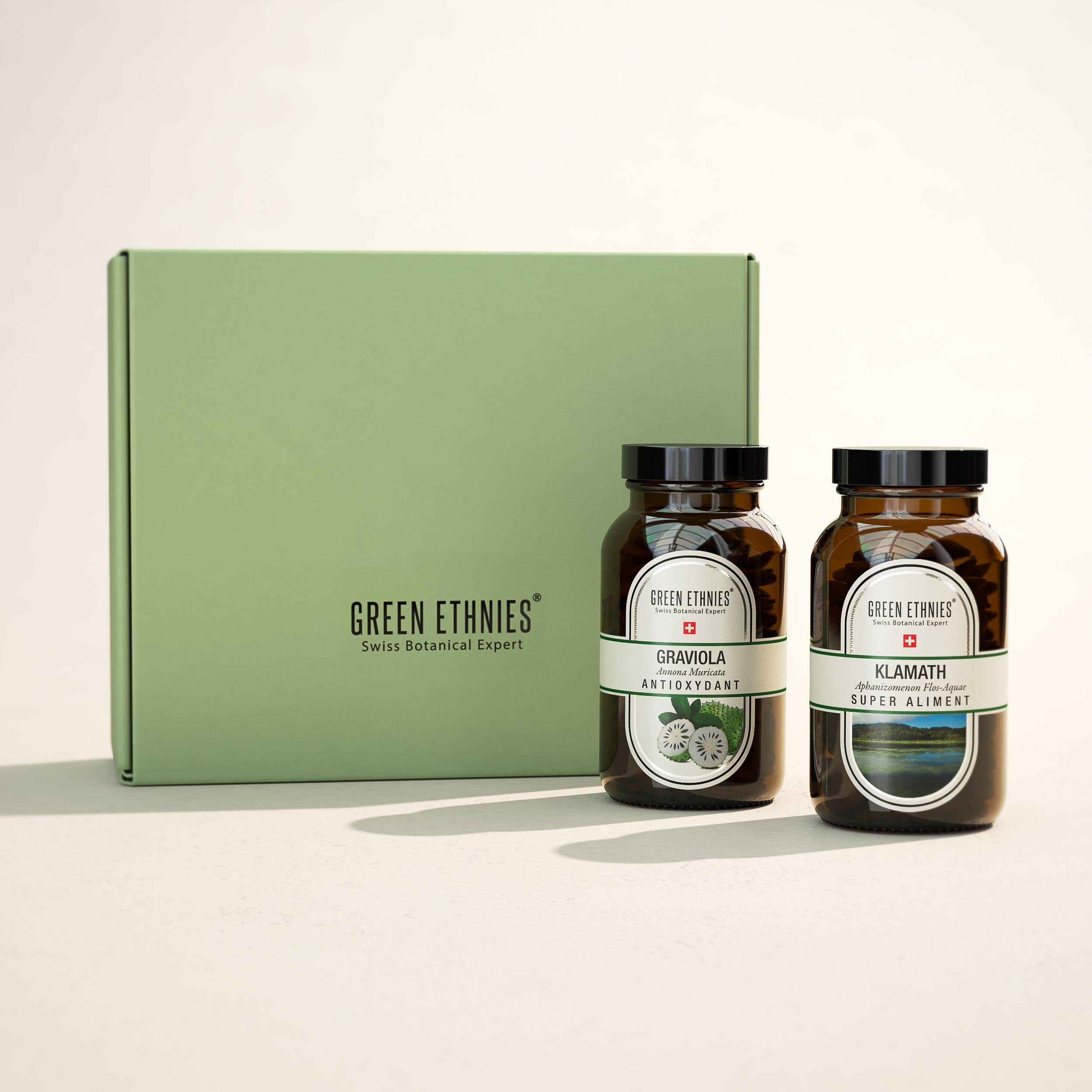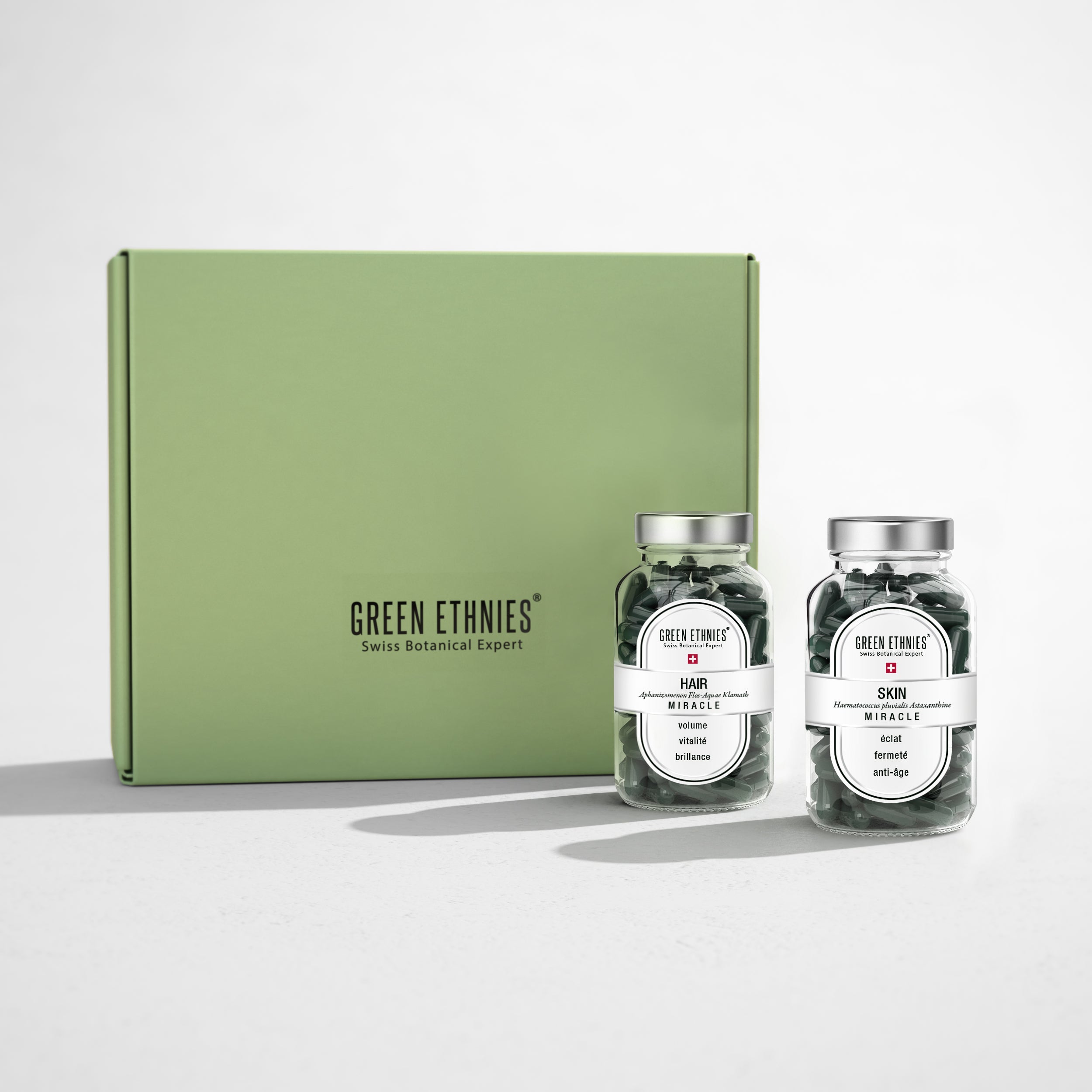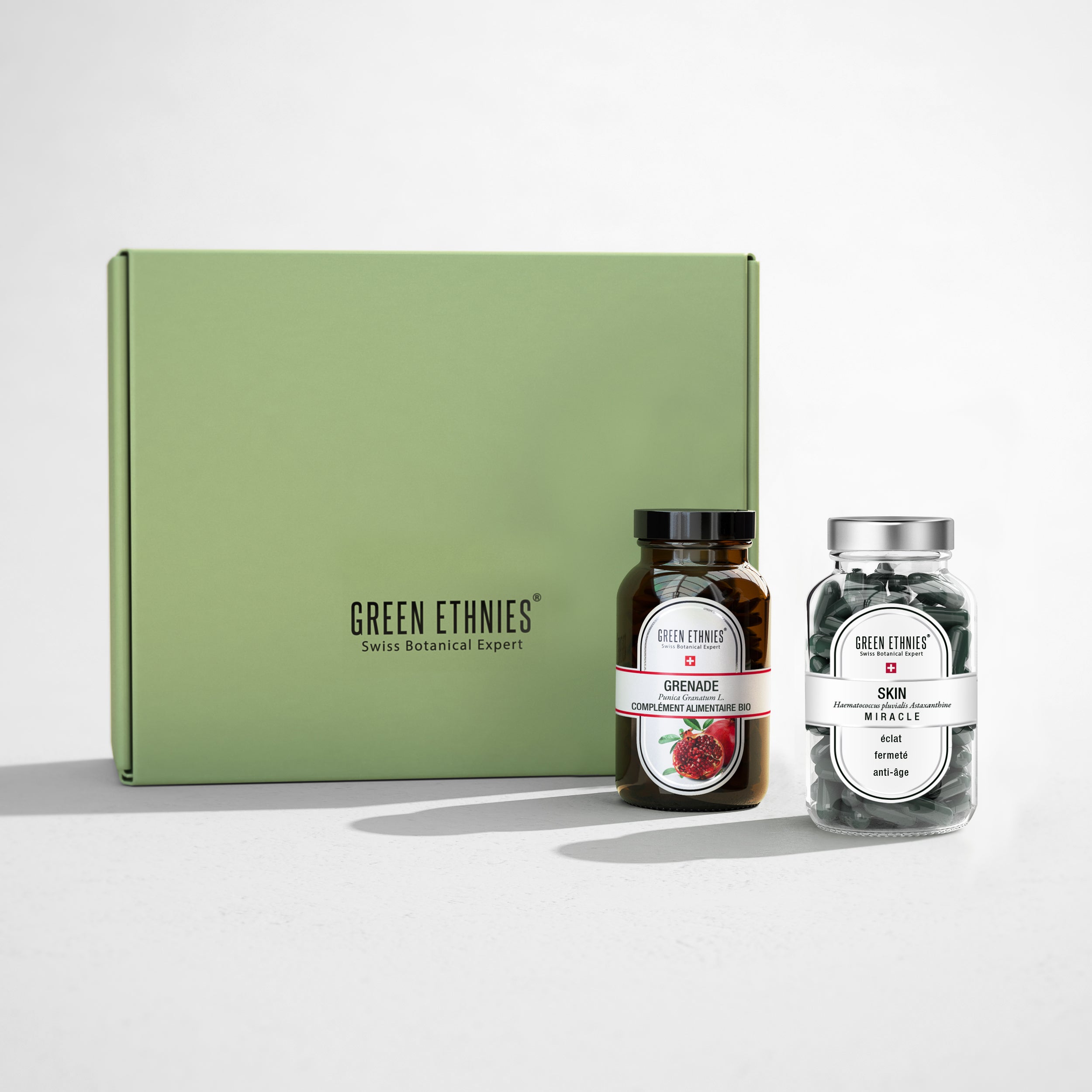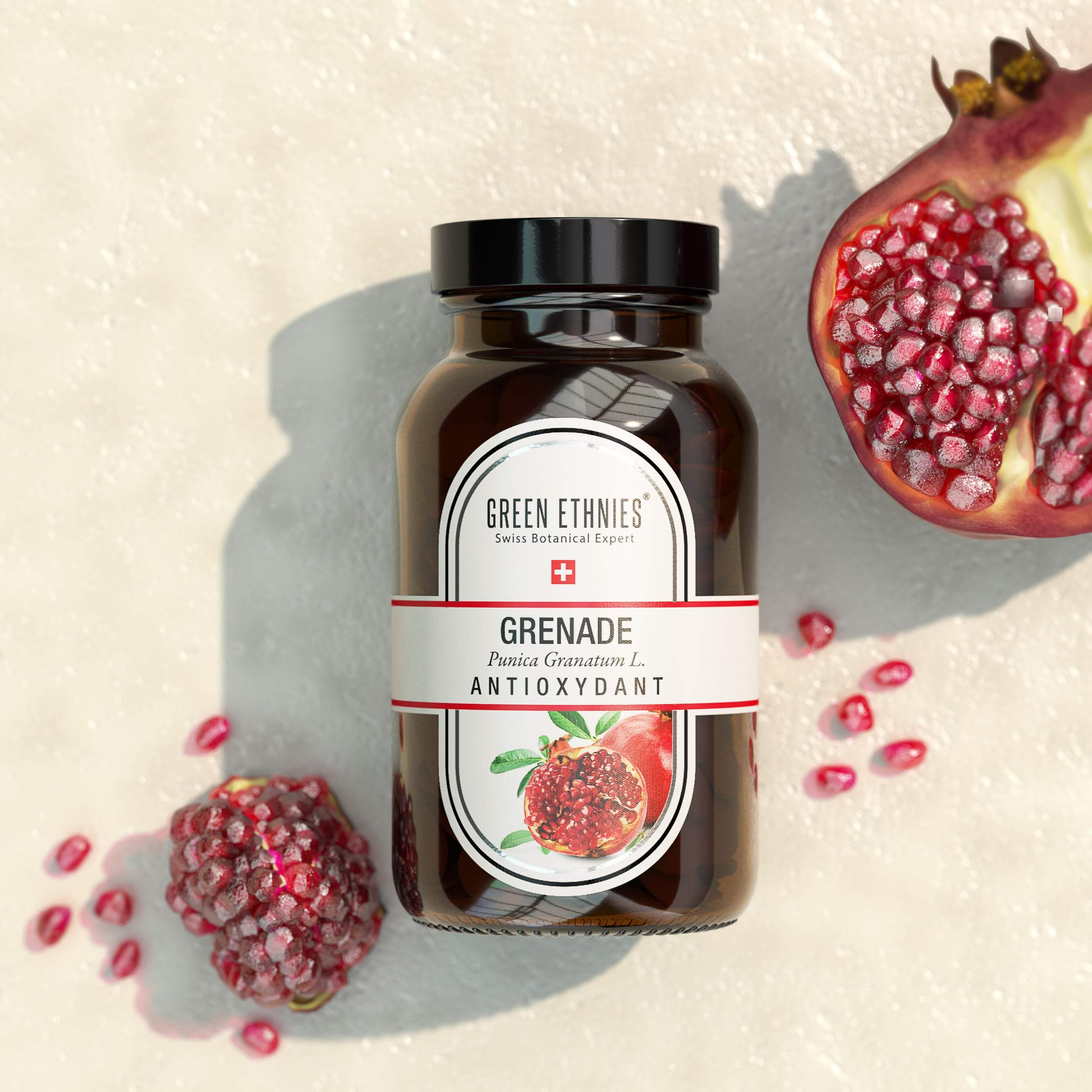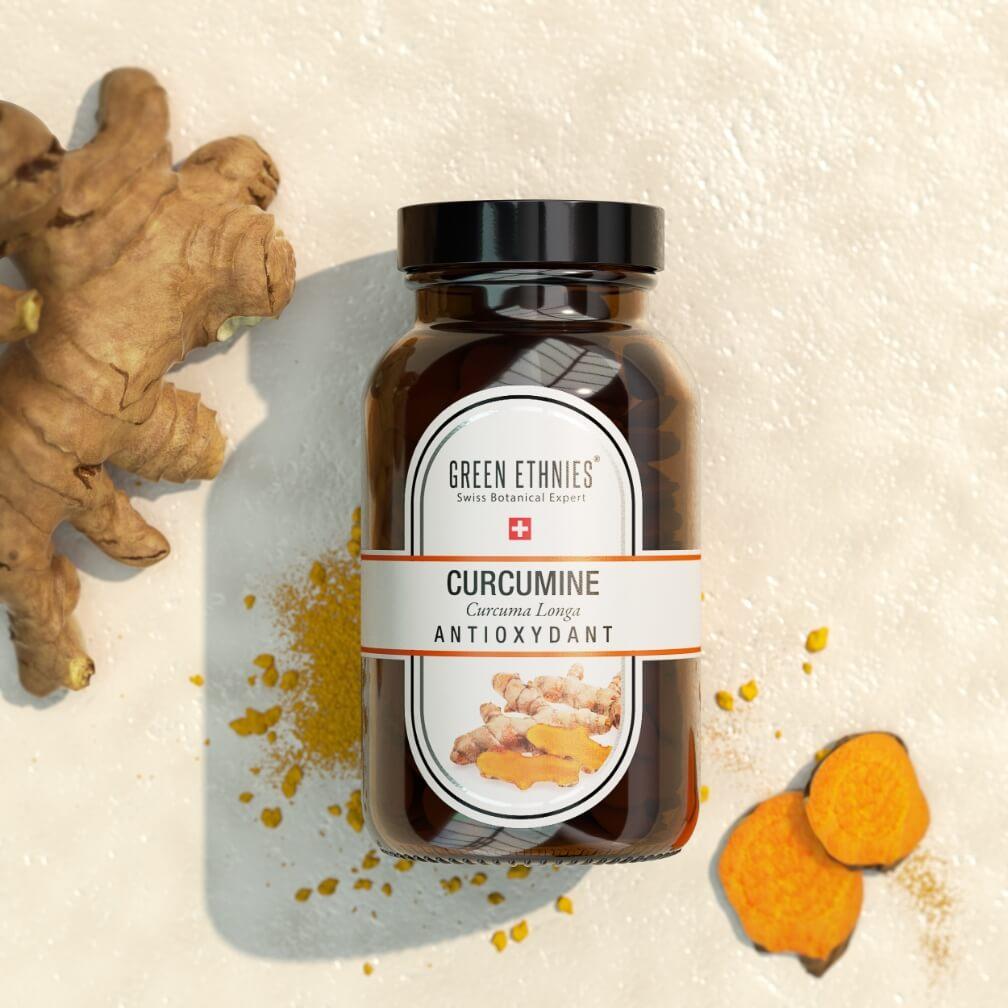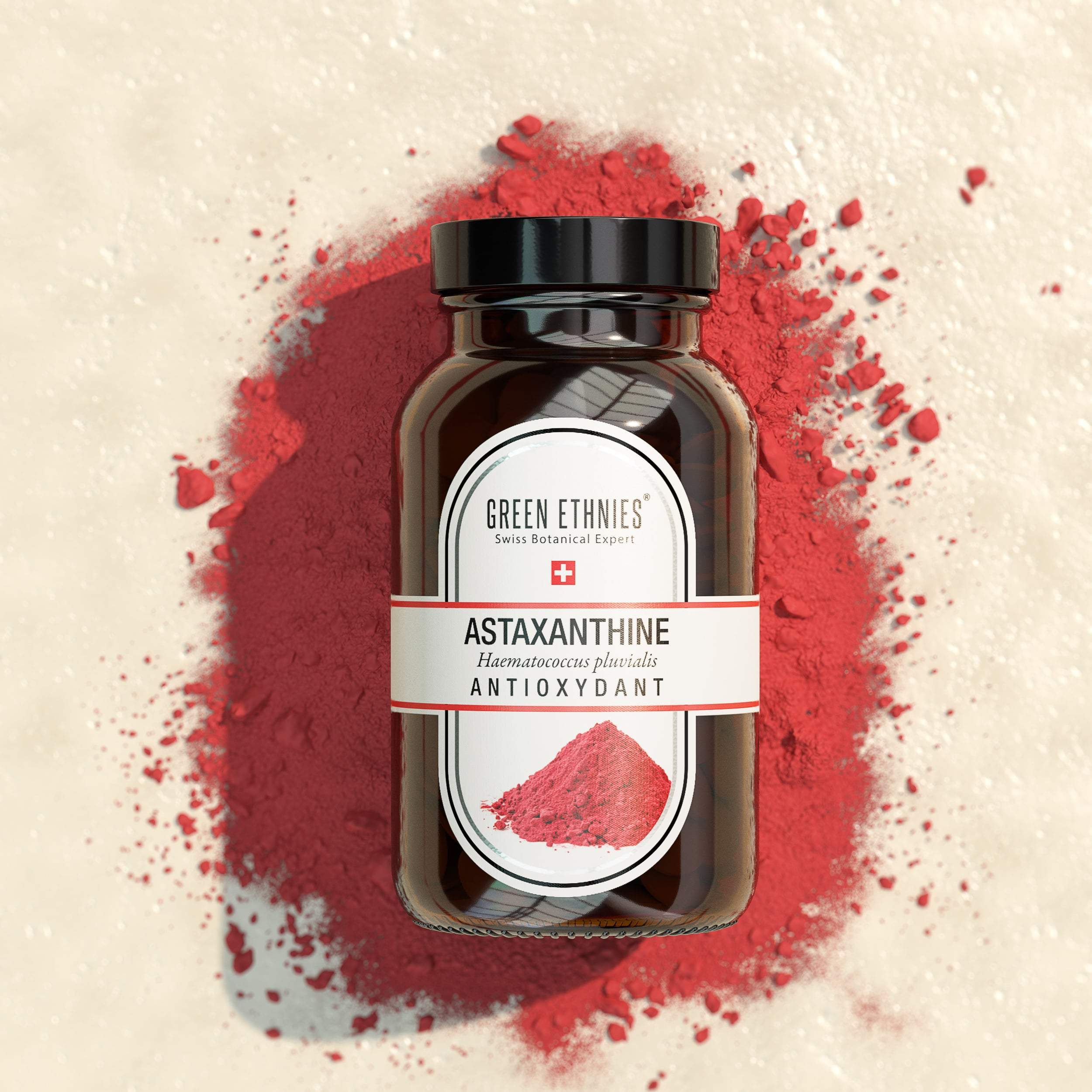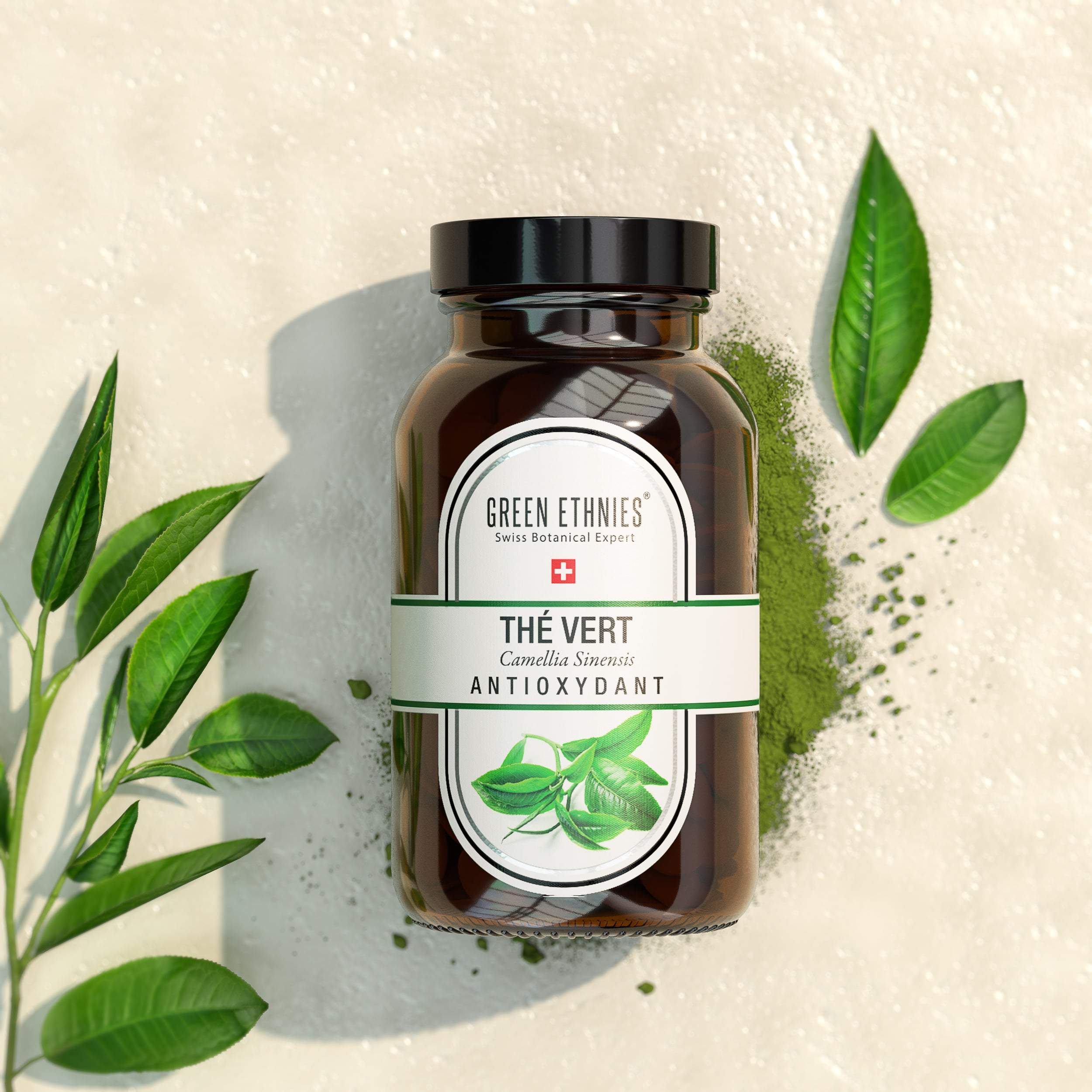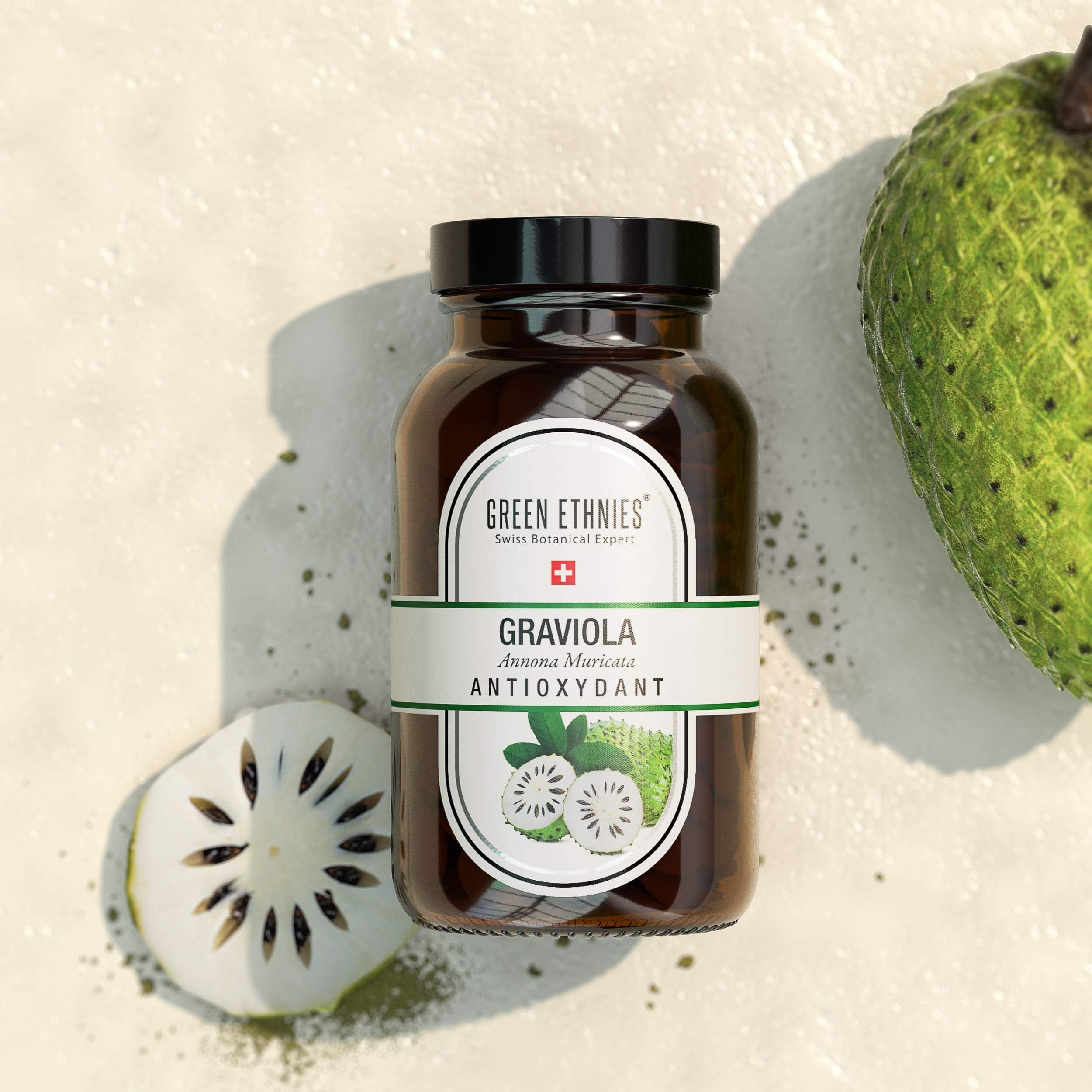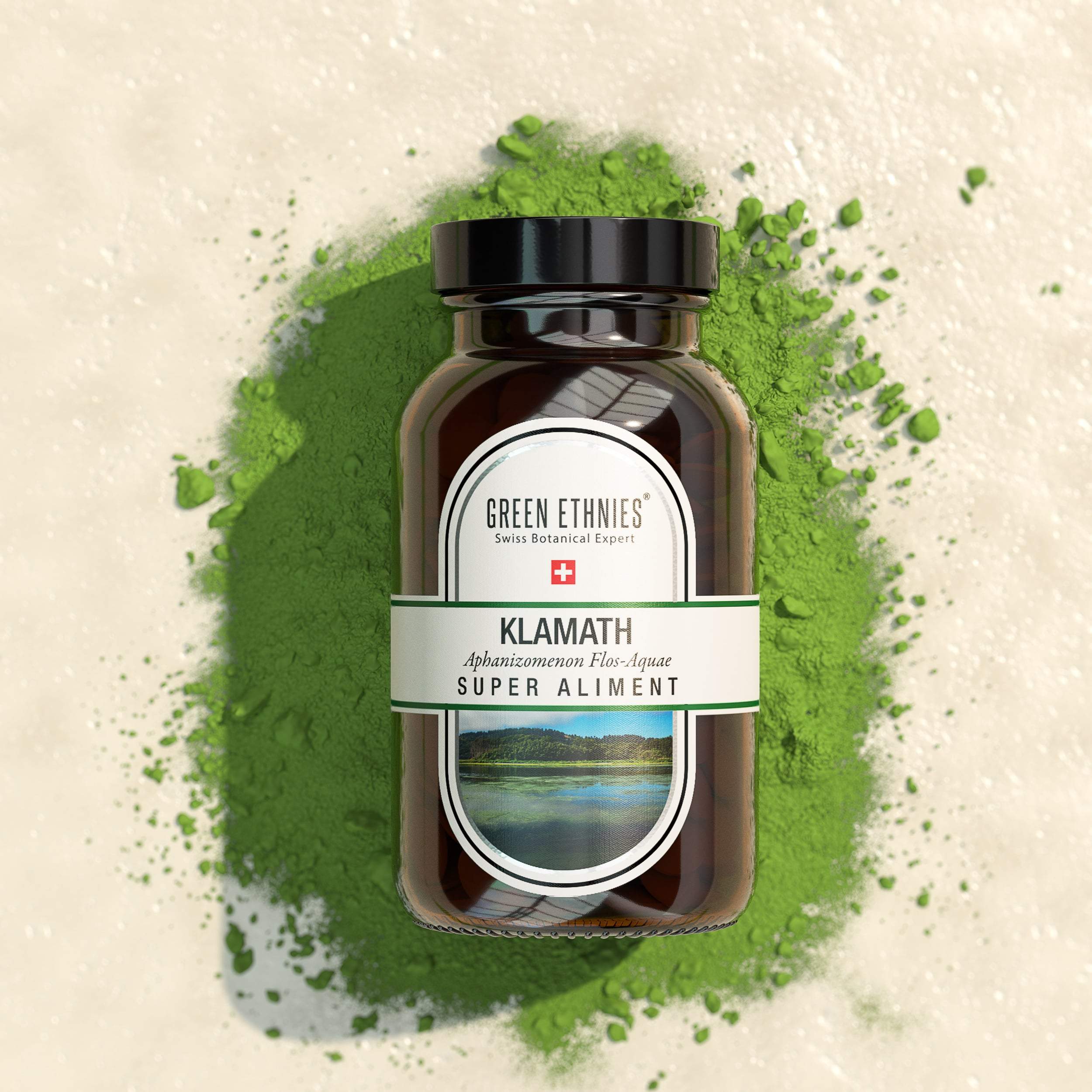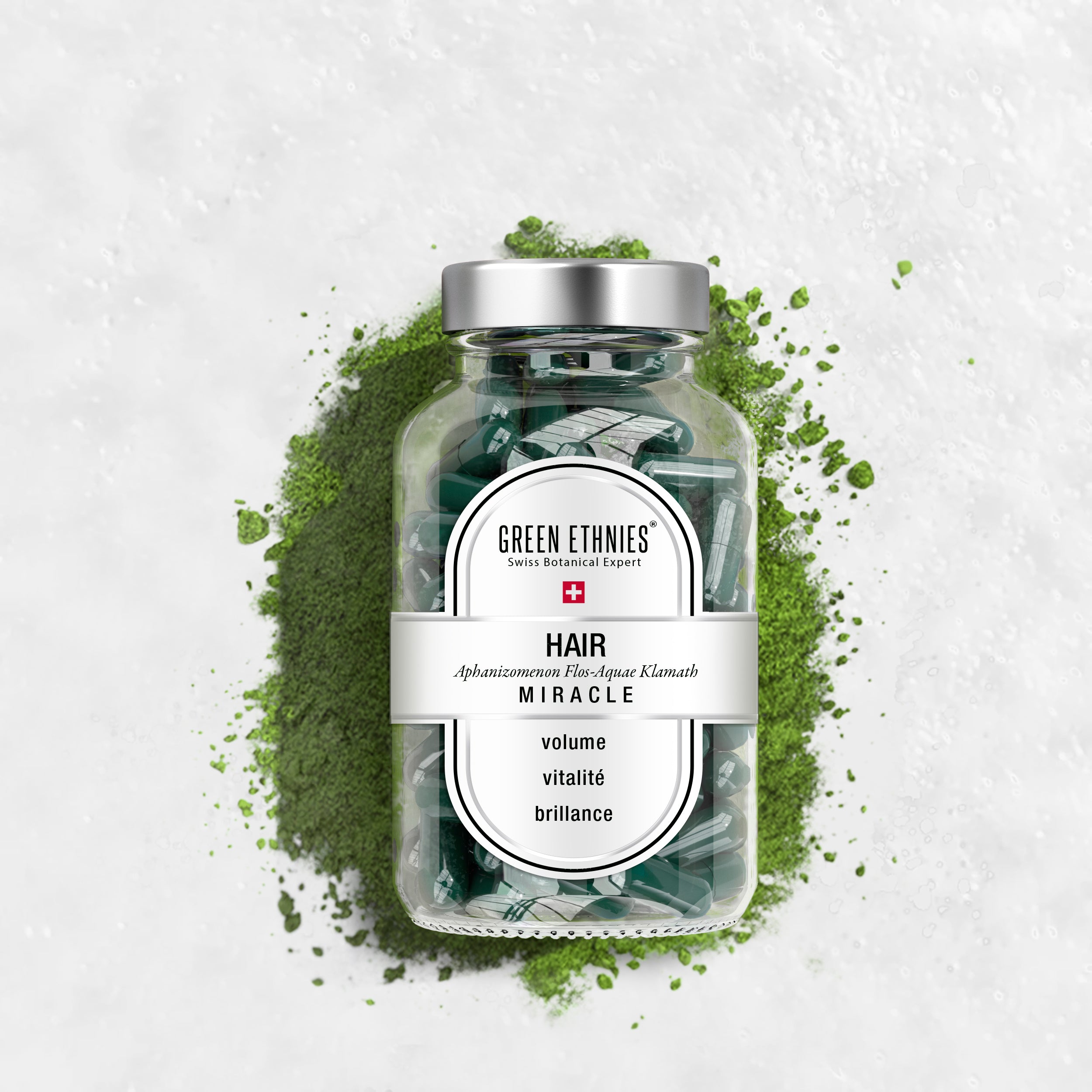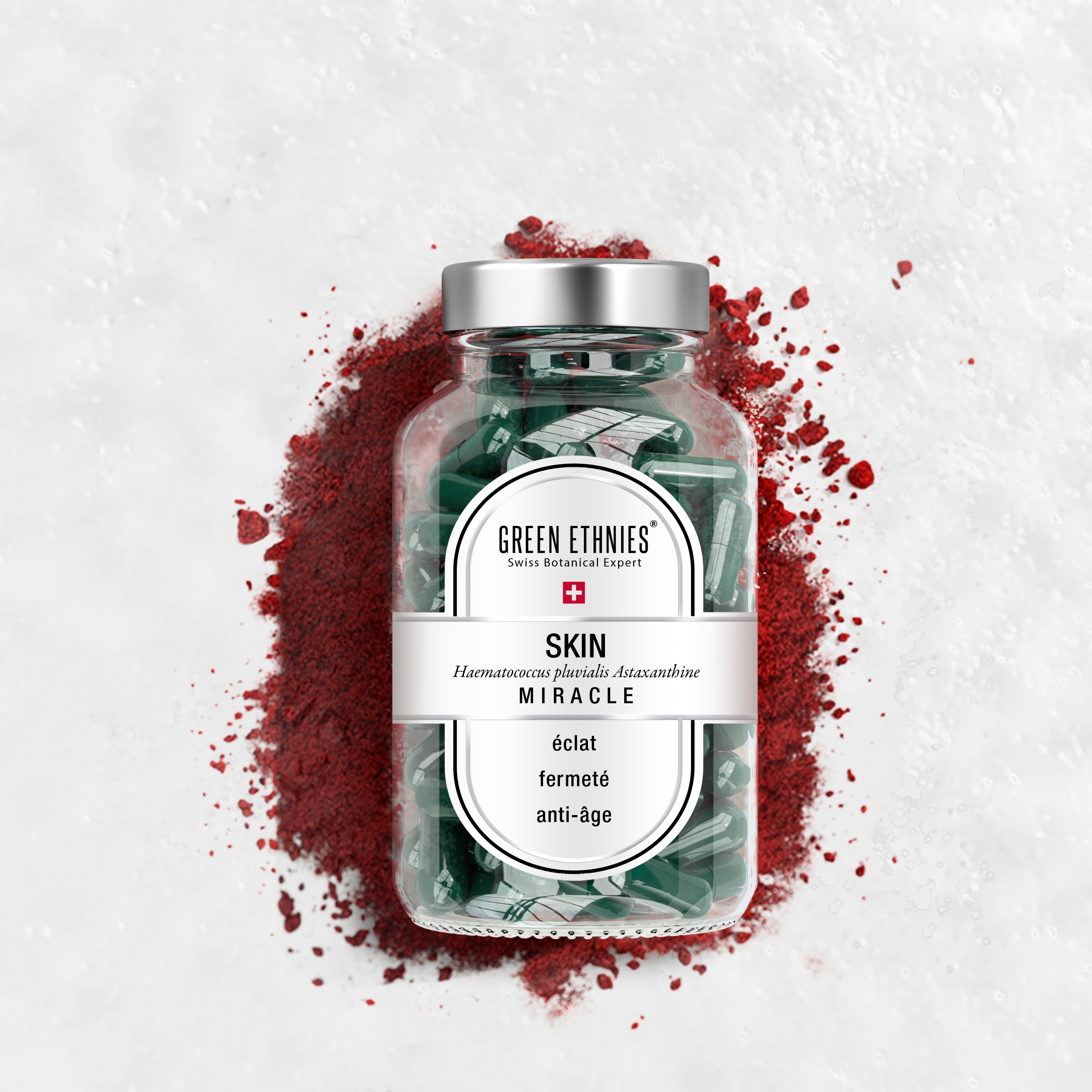
ASSOCIEZ VOTRE ANTIOXYDANT A UN SUPER ALIMENT.
L’algue Klamath et ses 115 micronutriments favorisent la protection de votre organisme et de ses fonctions vitales. Cette synergie vous permet de profiter pleinement des antioxydants de la Curcumine et des bienfaits de la Klamath, qui ensemble soutiennent les principaux systèmes physiologiques de votre corps.
Curcumine
- Régénération cellulaire
- Performance intellectuelle
- Régulateur de l’humeur
- Détoxifiant
- Renforcement du système immunitaire
Klamath
- Immunité
- Douleurs articulaires
- Protection cardiovasculaire
- Santé digestive
- Soutien du système nerveux
Curcumine
1 à 2 gélules par jour (cure de base)
4 gélules par jour (cure intensive)
Klamath
1 à 2 gélules par jour (cure de base)
4 gélules par jour (cure intensive)
LIVRAISON GRATUITE
PAIEMENT SÉCURISÉ
SERVICE CLIENT À VOTRE ÉCOUTE
Complément alimentaire Curcumine issue de Curcuma biologique de haute qualité.
Haute concentration d’actifs : 475 mg de Curcuminoïdes par gélule et 50 mg de Pipérine
Complément alimentaire Klamath issue de culture biologique de haute qualité.
Haute biodisponibilité.
Gélules végétales.
Sans excipient, sans gluten, sans lactose, sans levure, sans maïs, sans soja, sans OGM.

CURCUMINE
Pilulier 60 gélules
Extrait de Curcuma BIO 221 mg
dont 210 mg de curcuminoïdes
Extrait de poivre noir BIO 29 mg
Acérola BIO 35 mg
dont 6 mg de Vitamine C
Graines de cacao BIO 20 mg
Fibres d’acacia BIO (prébiotiques) 295 mg
Gélule en écorce de pin (HPMC)
KLAMATH
Pilulier 60 gélules
Klamath BIO 400 mg
Acérola BIO 35 mg
dont 6 mg de Vitamine C
Fibres d’acacia BIO (prébiotiques) 45 mg
Gélule en écorce de pin (HPMC)
Ingrédients issus de l’agriculture biologique
Concentré d’actifs surpuissants, l’algue Klamath participerait à la régénération de l’ensemble de l’organisme.
Axes Santé
Depuis plus de 30 ans, la Curcumine intéresse les chercheurs dans le champ d’application de maladies comme les cancers, le diabète, l’arthrite ou les maladies dégénératives. Aujourd’hui, les études scientifiques semblent unanimes : la Curcumine renforcerait en profondeur tout le système immunitaire et participerait ainsi à prévenir certaines maladies inflammatoires, virales, bactériennes et génétiques.
« Based on early cell culture and animal research, clinical trials indicate curcumin may have potential as a therapeutic agent in diseases such as inflammatory bowel disease, pancreatitis, arthritis, and chronic anterior uveitis, as well as certain types of cancer. »
Jurenka J S, ''Anti-inflammatory properties of curcumin, a major constituent of Curcuma longa: a review of preclinical and clinical research.'' Alternative medicine review. 2009; 14(2): 141-153
« This systematic review and meta-analysis provided scientific evidence that 8–12 weeks of standardized turmeric extracts (typically 1000 mg/day of curcumin) treatment can reduce arthritis symptoms (mainly pain and inflammation-related symptoms) and result in similar improvements in the symptoms as ibuprofen and diclofenac sodium. Therefore, turmeric extracts and curcumin can be recommended for alleviating the symptoms of arthritis, especially osteoarthritis. »
Banach, M et al, ''Lipid, blood pressure and kidney update 2013'' Int. Urol. Nephrol. 2014; 46: 947–961.
« As exemplified in this article, curcumin has been shown to exert beneficial effects in several models of cardiovascular disease, including atherosclerosis, cardiac hypertrophy, hypertension and ischemia/reperfusion. »
Kapakos G, Youreva V, and Srivastava A K, ''Cardiovascular protection by curcumin: molecular aspects.'' Indian Journal of Biochemistry & Biophysics. 2012; 49 : 306-315
« Because of its increased bioavailability in the gastrointestinal tract, gastrointestinal diseases including inflammatory bowel diseases, hepatic fibrosis and gastrointestinal cancers are one of the most investigated diseases demonstrating the therapeutic potential of curcumin. »
Rajasekaran S A ''Therapeutic potential of curcumin in gastrointestinal diseases.'' World journal of gastrointestinal pathophysiology. 2011; 2(1) : 1-14
« Indeed, accumulating cell culture and animal model data show that dietary curcumin is a strong candidate for use in the prevention or treatment of major disabling age-related neurodegenerative diseases like Alzheimer’s, Parkinson’s, and stroke. »
Cole G M, Teter B, and Frautschy S A, ''Neuroprotective effects of curcumin.'' Adv Exp Med Biol. 2007; 595: 197-212
« Research has shown curcumin to be a highly pleiotropic molecule capable of interacting with numerous molecular targets involved in inflammation. »
Jurenka J S, ''Anti-inflammatory properties of curcumin, a major constituent of Curcuma longa: a review of preclinical and clinical research.'' Alternative medicine review. 2009; 14(2): 141-153
« A 9-month curcumin intervention in a prediabetic population significantly lowered the number of prediabetic individuals who eventually developed T2DM.»
Chuengsamarn S et al., ''Curcumin extract for prevention of type 2 diabetes.'' Diabetes care. 2012; 35(11): 2121-2127.
« An agent which possesses both anti-bacterial and antiinflammatory actions can be considered as ideal for developing into medicaments with a range of possible applications in endodontic procedures. »
Mandroli P S, and Bhat K, ''An in-vitro evaluation of antibacterial activity of curcumin against common endodontic bacteria.'' Journal of Applied Pharmaceutical Science. 2013 3(10) : 106-108
Depuis plus de 30 ans, la Curcumine intéresse les chercheurs dans le champ d’application de maladies comme les cancers, le diabète, l’arthrite ou les maladies dégénératives. Aujourd’hui, les études scientifiques semblent unanimes : la Curcumine renforcerait en profondeur tout le système immunitaire et participerait ainsi à prévenir certaines maladies inflammatoires, virales, bactériennes et génétiques.
« Based on early cell culture and animal research, clinical trials indicate curcumin may have potential as a therapeutic agent in diseases such as inflammatory bowel disease, pancreatitis, arthritis, and chronic anterior uveitis, as well as certain types of cancer. »
Jurenka J S, ''Anti-inflammatory properties of curcumin, a major constituent of Curcuma longa: a review of preclinical and clinical research.'' Alternative medicine review. 2009; 14(2): 141-153
« This systematic review and meta-analysis provided scientific evidence that 8–12 weeks of standardized turmeric extracts (typically 1000 mg/day of curcumin) treatment can reduce arthritis symptoms (mainly pain and inflammation-related symptoms) and result in similar improvements in the symptoms as ibuprofen and diclofenac sodium. Therefore, turmeric extracts and curcumin can be recommended for alleviating the symptoms of arthritis, especially osteoarthritis. »
Banach, M et al, ''Lipid, blood pressure and kidney update 2013'' Int. Urol. Nephrol. 2014; 46: 947–961.
« As exemplified in this article, curcumin has been shown to exert beneficial effects in several models of cardiovascular disease, including atherosclerosis, cardiac hypertrophy, hypertension and ischemia/reperfusion. »
Kapakos G, Youreva V, and Srivastava A K, ''Cardiovascular protection by curcumin: molecular aspects.'' Indian Journal of Biochemistry & Biophysics. 2012; 49 : 306-315
« Because of its increased bioavailability in the gastrointestinal tract, gastrointestinal diseases including inflammatory bowel diseases, hepatic fibrosis and gastrointestinal cancers are one of the most investigated diseases demonstrating the therapeutic potential of curcumin. »
Rajasekaran S A ''Therapeutic potential of curcumin in gastrointestinal diseases.'' World journal of gastrointestinal pathophysiology. 2011; 2(1) : 1-14
« Indeed, accumulating cell culture and animal model data show that dietary curcumin is a strong candidate for use in the prevention or treatment of major disabling age-related neurodegenerative diseases like Alzheimer’s, Parkinson’s, and stroke. »
Cole G M, Teter B, and Frautschy S A, ''Neuroprotective effects of curcumin.'' Adv Exp Med Biol. 2007; 595: 197-212
« Research has shown curcumin to be a highly pleiotropic molecule capable of interacting with numerous molecular targets involved in inflammation. »
Jurenka J S, ''Anti-inflammatory properties of curcumin, a major constituent of Curcuma longa: a review of preclinical and clinical research.'' Alternative medicine review. 2009; 14(2): 141-153
« A 9-month curcumin intervention in a prediabetic population significantly lowered the number of prediabetic individuals who eventually developed T2DM.»
Chuengsamarn S et al., ''Curcumin extract for prevention of type 2 diabetes.'' Diabetes care. 2012; 35(11): 2121-2127.
« An agent which possesses both anti-bacterial and antiinflammatory actions can be considered as ideal for developing into medicaments with a range of possible applications in endodontic procedures. »
Mandroli P S, and Bhat K, ''An in-vitro evaluation of antibacterial activity of curcumin against common endodontic bacteria.'' Journal of Applied Pharmaceutical Science. 2013 3(10) : 106-108
Quels sont les compléments alimentaires dont j’ai besoin ?
« Que ta nourriture soit ton médicament et que ton médicament soit dans ta nourriture »
Hippocrate, Grèce Antique




